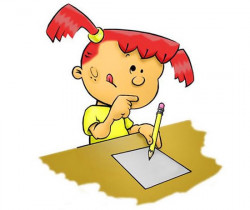- Start Here
-
Lis
5 things every marketing story needs
Marketing has always teetered on the edge between art and business. It is the intersection of words and numbers - the no-man's land where stories can be told, desires born and attitudes formed.
A good marketing myassignmenthelp story is told with ease but leaves lasting impressions. It not only captures attention, it holds it - with depth, meaning, emotionally impactful elements and a precise selection of expressive tools.
That's why this story is so enticing to share - it doesn't sell products, it creates desires. It doesn't advertise a commodity, it provokes a need to be fulfilled - be it real or newly born.
To tell a good story, an experienced author must know his audience and their needs, have reasonable assumptions about their attitudes, and be able to transform the sale into an act of art. And while there's a spark of improvisation in every good story, here are the key components you must think about when sketching a draft.
Character
Every story needs a protagonist-whether it be a person, an object, a zipjob, or anything else. Unfortunately, very often that hero is mistakenly thought to be the business itself. This reflects on the final product and robs much of its charm and effectiveness. That's why professional copywriting agencies always put a lot of emphasis on this key component - creating characters that are vivid, memorable, and most of all, ones the reader can relate to. This, in effect, turns the reader into a character themselves - which is exactly the goal of any good marketing story.
Goal
The purpose of a good marketing story is to show an easier, better, less problematic version of reality, and then to point out the way to realize that version. The best stories are a product of reality, in this case the buyer's profile, immediate concerns, long-term goals and dreams. A high level of story personalization creates an excellent effect when properly targeting a marketing campaign. Thus, the character's goal matches the customer's goal, and the two together match the business's goals.
Obstacles
Victory isn't sweet when it's not won. That's exactly why a story without obstacles can't spark much interest or create real momentum and yearning to reach the end goal. The narrative of overcoming obstacles is one of the most important features of a winning campaign - it can tell a graphic story of the ways in which a business breaks down barriers and leads the consumer to their cherished goal.
Mentoring
A story rarely succeeds if it wags its finger and "studypool" immutable truths about life. By virtue of this logic, winning businesses and marketing stories are first and foremost mentors - they guide the customer along their path to the goal, suggest successful moves, and provide the most direct route to achieving goals without doing so in an overly invasive, offensive, and aggressive manner.
Honesty
Even the best marketing story is meaningless if it is served with an outright lie. Winning the consumer's trust is the most important victory that guarantees an ever-increasing number of satisfied and loyal customers. That's why a good story must be realistic - it must show the full picture, not be afraid of its vulnerability and keep the human face of the brand.
Because story is the universal language that creates unity between people. And the only way to maintain a strong, positive brand is to make it speak that language.
Related resources:
How to create, maintain and make money from a blog?
Create a blog
So much for the initial steps - Connectez-vous pour marquer cette leçon comme terminée.
